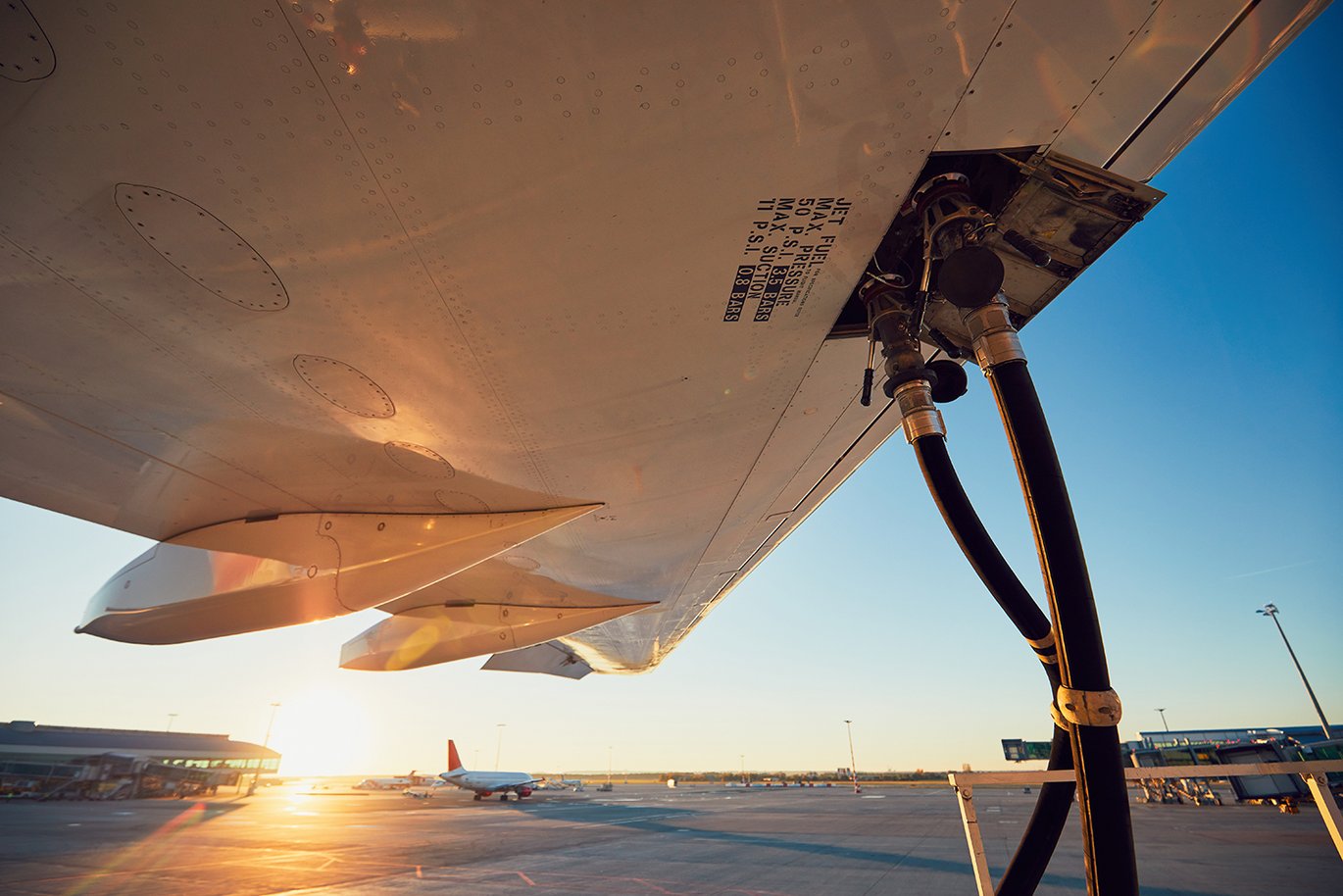New demonstration facility for sustainable aviation fuel at AU Viborg is first of its kind
From hydrogen and CO2 to synthetic crude oil to high-value aviation fuel. In a research collaboration with Topsoe and Sasol, Aarhus University's research centre in Foulum will be at the heart of a new demonstration facility that showcases the entire value chain related to the production of sustainable aviation fuel based on CO2 and renewable energy.

Today, the transport industry is one of the sectors struggling the most to adapt to a green alternative. And the aviation sector in particular is struggling. Civilian air traffic alone emits approx. 2 per cent of all man-made CO2emissions, and the aviation sector is responsible for approx. 4-5 per cent of the total global greenhouse effect.
A new research project will now design, test and install the world's first demonstration facility that showcases the entire value chain related to the production of sustainable aviation fuel based on CO2 and renewable energy. The project, called FrontFuel, has received DKK 26.9 million in funding from the Energy Technology Development and Demonstration Programme (EUDP) under the Danish Energy Agency.
"The FrontFuel project is an exciting step towards commercialising new technologies for the production of sustainable aviation fuels (SAF) and will make a meaningful contribution to the decarbonisation of the aviation sector. By working with our expert partners and with the support of the EUDP, we’re confident we can accelerate the journey towards the commercial production of SAF,” says Kim Grøn Knudsen, CSIO at Topsoe A/S, in a press release.
The green transition of the aviation sector is currently challenged by immature technologies with high costs, insufficient scalability and high feedstock costs, for example. If we as a society are to retain the sector in the future, it is essential that alternative liquid drop-in fuel sources are available at scale.
"Power-to-X has its raison d'être in the so-called hard-to-abate sectors, where converting away from fossil fuels is difficult. The aviation sector is a good example, because aviation fuel is the most energy-dense fuel we have, and it’s the hardest to make synthetically, and it’s therefore a huge boost for commercialisation efforts that we can demonstrate the entire value chain for aviation fuel production, beginning with renewable energy via hydrogen and CO2 to the finished product,” says Thomas Lundgaard, deputy head of department at Aarhus University's Department of Biological and Chemical Engineering, who is responsible for Aarhus University's contribution to the FrontFuel project.
Aarhus University's research centre in Foulum, AU Viborg will host the entire technology package for the production of CO2-neutral aviation fuel.
"In the project, we will use all the technologies together at an industrial scale, thereby enabling us to demonstrate that the approach works, while also removing the final obstacles standing in the way of being able to present a solid business case. We expect that this will pave the way for the first commercial facilities,” continues Thomas Lundgaard.
The FrontFuel project is headed by Topsoe A/S, the world leader in climate technology. Aarhus University will house the demonstration facility and contribute expertise in the fields of power-to-gas technology and techno-economic analysis. Sasol, one of the world's leading companies within Fischer-Tropsch technology - a chemical process that produces synthetic crude oil from, for example, natural gas - will also participate.
Contact
Thomas Lundgaard
Aarhus University, Department of Biological and Chemical Engineering
Mail: thomas.lundgaard@bce.au.dk
Tel.: +4529163135
